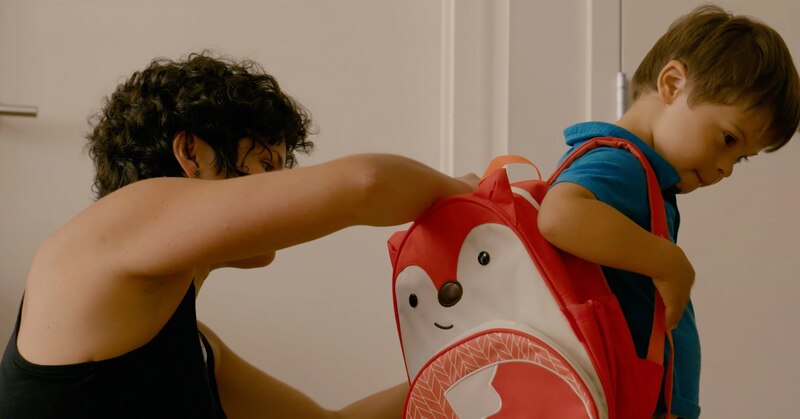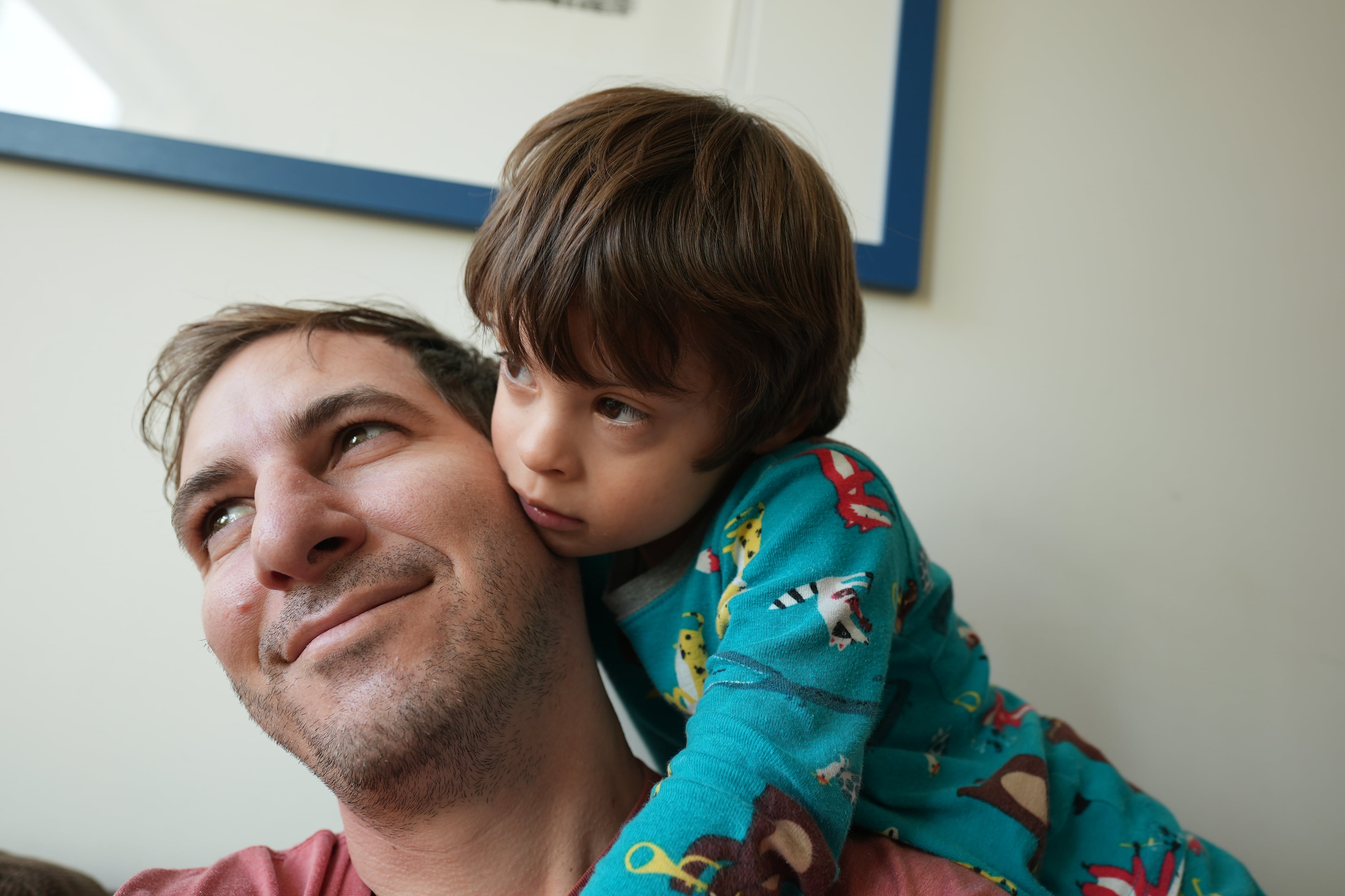Olivier Bernier set out to make a film about how students with disabilities could be included in classrooms alongside their non-disabled peers. But as he and his wife, Hilda, began struggling to enroll their son, Emilio, in an inclusive classroom, they turned the camera on themselves.
The result is an unusual look behind the curtain of New York City’s special education system, as the family tries to persuade the city to enroll their preschool-aged son who has Down syndrome, in a classroom that includes students with a range of abilities.
The family, who lived in Bushwick at the time, ultimately found some success enrolling Emilio in an inclusive preschool classroom. But their new documentary, “Forget Me Not,” shows that the path was full of obstacles, including few school options and department officials who repeatedly waved away their requests for their son to be placed in a classroom alongside students of diverse abilities.
“We would like Emilio’s classroom setting to look just like we’d expect society to look like,” Olivier told Chalkbeat. “There’s this term given, ‘special student,’ and really Emilio is just another student. Emilio has challenges that he needs help with. But we also expect him to work when he gets older, and to be part of society.”
“Forget Me Not” is streaming as part of the virtual Human Rights Watch Film Festival, which runs May 19-27. There will be a Q&A Wednesday, May 19, with Olivier and Hilda. In advance of the documentary’s launch, the filmmakers spoke with Chalkbeat.
The interview has been edited for length and clarity.
One thing that really struck me about the film is you welcomed viewers into some of the most private moments of parenting, including your son’s doctors telling you that he had signs of Down syndrome just a few moments after he was born. What kind of film were you planning when you first started shooting?
Olivier: I wasn’t planning any film when we first started shooting. It was just that filming, you know, these intimate moments of my son growing up.
We didn’t set out to make a film about Emilio’s IEP [individualized educational program] process, we set out to make a film about inclusive education, and the film kind of transitioned when everything with Emilio started happening because as I’m making this positive film about what an inclusive education system that works could look like, we saw our son caught in the crosshairs of segregation. That suddenly became part of the film. And you know, from making the film what I realized is that Emilio’s story is representative of so many other children’s stories.
The film shows education department officials repeatedly resisting your suggestion that Emilio should be learning alongside his non-disabled peers. Was there a specific inclusion program you were hoping that they would recommend for him, or was the problem that the city didn’t really have one set up for students like Emilio?
Hilda: It was discouraging from the get-go because every time we contacted schools and requested to see the different classroom settings, we were told that we would only be shown what was on the IEP. And that made the search very difficult. And there was probably one place that kind of gave us a tour and showed us all the different classroom settings they had.
Olivier: But once they looked at the IEP, they’re like, ‘Oh no, we wouldn’t be able to accept him into the integrated setting.’
At one of the meetings shown in the film, the education department administrator seems to be willing to allow Emilio to attend an integrated classroom, but it seems like she wants to keep his official recommendation as a segregated classroom that would only serve students with disabilities. What happened there?
Olivier: From my perspective, it just made no sense. It was saying that Emilio had to be recommended for a 12:1:2 [a classroom with 12 students, one special education teacher, and two aides], which is a segregated setting but we’re gonna make this one exception for this one school.
Hilda: On paper he still had the 12:1:2 recommendation. But it had a clause, partial integration.
Olivier: And we were excited to accept that — Emilio would be able to be attending an integrated setting. But the way it was framed to us is that after a year in that setting if he did really well, he would be able to get a fully integrated IEP, which you know if you’ve seen the film, didn’t turn out so well.

Was the inclusive setting Emilio was ultimately offered a good experience? What did the classroom look like?
Hilda: So the ratio was 50-50 [half students with disabilities and half general education students]. And he had a wonderful teacher. She was an incredible teacher, and there were two aides in the classroom that were working with all the students.
All of a sudden, he was exposed to kids that were speaking. They were physically at a different level and he just started mimicking all these things, and I think that reassured us that was the environment that he should continue on.
Why do you think they ultimately let you into an integrated setting?
Hilda: We spent a lot of hours trying to make them see our take on it.
Olivier: And not only that, I mean just leading up to the [IEP] meeting, it consumed our entire life, for months and months — like nights of no sleep — trying to figure out how can we give our son this opportunity.
You moved to Montclair, New Jersey during the pandemic. Was your move sparked by your experience here or was it mostly pandemic-related?
Hilda: I was losing it in a two-bedroom apartment with a toddler.
Olivier: Emilio is going to be a big brother soon. We did look into areas that we felt were better suited to what we hoped for Emilio, but there’s no guarantees. We’re going to get his IEP meeting soon for kindergarten, and we still don’t know how that’s gonna go.
I think a lot of parents of kids with disabilities are going to identify with your struggle to navigate New York City’s special ed system. I’m wondering what you hope other families take away from your experience?
Olivier: Well, for myself, I hope that it gives parents strength to question what the DOE is telling them. So I think every individual and every parent and every family has to make their own decision, but they should go in informed. You know the federal law on inclusion is pretty clear. It says, ‘try inclusion first’ and the DOE is not doing that. So people really need to question why.
If you don’t have a child with a disability you have no idea how this system is, how intimidating it is, how poorly designed it is. And, you know, I hope that just by spreading the word and people sharing their experiences, there’ll be more conversation around the issue.






